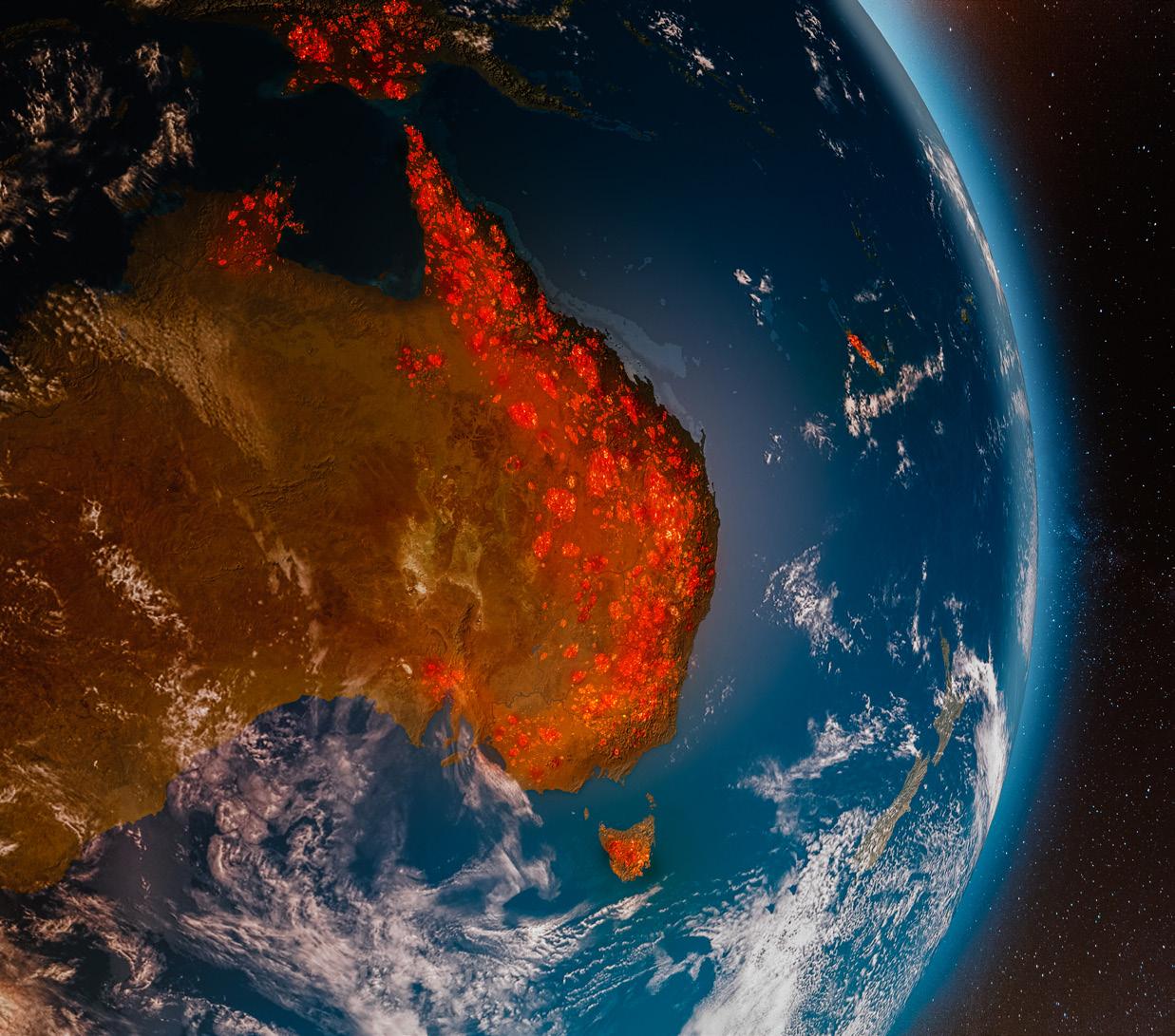
4 minute read
Step 2: Communicate
STEP 2: COMMUNICATE THE BARE FACTS: COMMUNICATING CLIMATE CHANGE
Effective communication during and after natural disasters can play a huge role in a company’s profits from one year to the next. But what role do brokers play? Nina Hendy speaks to the experts.
The broader insurance industry has never been under greater scrutiny when it comes to communicating accurate and timely information about climate-related risk to clients.
Just in the last year alone, Australia has been battered by a number of catastrophic natural disasters, prompting insurers to put their own communication skills under the spotlight behind closed doors.
Whether it’s fires, floods or storms, the sheer size of each natural disaster event places brokers under immense pressure to communicate in new and improved ways.
A few of the most recent disasters paint the full picture.
The Insurance Council of Australia confirms that insurers have handled more than 23,362* insurance claims from bushfire regions in New South Wales, Queensland, South
6 Australia and Victoria since November 8. Insurance losses are estimated at $1.9 billion* in total this bushfire season.
During the December/January bushfire crisis, more than 60 insurance staff attended the evacuation centre in Melbourne to talk to evacuees about their needs. Insurers also booked hundreds of hotel and motel rooms as emergency accommodation, along with organising financial assistance to many customers.
Meanwhile, the severe flooding in Queensland produced overall losses of almost $1 billion - only half of which was insured.
HONESTY THE BEST POLICY
It’s fair to say that communication skills are being tested more than any other time in history.
Brokers are in the frontline, so are charged with the task of communicating accurate information about climate change in a credible and relevant manner, in a bid to protect clients from climate-related exposures.
Of course, communication extends way beyond phone etiquette – it’s about showing compassion on the fire ground and organising emergency accommodation for often hundreds of displaced families at a time.
For the past 20 years, reinsurer Munich Re has surveyed natural catastrophes. One report** reads: “It’s not just the number of natural catastrophes studied over the decades has increased … as a result of climate change, but the impact of these events (as anticipated) has also become much greater and more costly.”
The research underscores the importance of really understanding how people react to information about the risk of natural catastrophes.
It’s common for people to get bogged down in the cause of climate change and who’s to blame, according to Glen Drinnan, who is the General Manager of Broker Distribution at Allianz.
“Getting past this, it’s hard to debate that our climate is changing, especially when we provide them with the facts. Only when your clients understand how our climate is changing can they turn their attention to how it will impact them,” Drinnan says.
Allianz is taking several steps 1 to support climate change issues. The company’s Global CEO Oliver Bate is also co-chairing the Global Investors for Sustainable Development Alliance.
At a local level, Allianz is working with the Insurance Council of Australia to better understand risks linked to climate change, recognising the far-reaching implications.
“Properly understanding the exposure ourselves is the first step towards educating and equipping our customers, so they can make more informed choices about how to manage it,” Drinnan says.
THE BARE TRUTH
Professor Benjamin Newell has conducted research titled The Psychology of Climate Change and Communication. His research comes as the increase in the frequency and impact of natural disasters highlights a need to provide the public with accurate information around disaster prevalence.
Professor Newell believes the broader industry has an opportunity to step up and develop strong communication skills around climate change.
In fact, insurers and brokers are well positioned to be an independent non-government voice in the climate change debate, he says.
“Insurers need to be as upfront and realistic as possible and describe the risks in ways that people can readily incorporate how changes in the climate (such as global warming) will impact their lives,” Professor Newell says.
“They also need to be clear that the uncertainty of impact (in terms of extremity) should not be taken as a reason not to act – quite the contrary, because uncertainty cuts both ways (upside and downside risk). The more uncertain one is, the more action, such as taking out insurance, is imperative,” he adds.
Drinnan agrees that brokers have a crucial role to play in the communication of climate change, adding that they should develop a bank of credible, fact-based insights to share with clients.
“These should avoid (or limit) opinion pieces and focus on items that will help clients to understand the issue, not attempt to solve it,” Drinnan says.
SPEAK THE SAME LANGUAGE
Six definitions that'll get you and your client on the same page
• Hazard Something that makes your situation more risky, such as storing explosives in your house.
• Risk Meanings include the likelihood of something happening that could cause injury or financial loss, exposure to a specific threat, hazard or peril or uncertainty to the outcome of an event.
• Vulnerability A vulnerable customer is someone who, due to their personal circumstances, is especially susceptible to risk.
• Exposure The amount of loss a customer could experience.
• Sensitivity Determines how various sources of uncertainty contribute to overall uncertainty.
• Adaptive capacity Relates to the ability to adjust to potential damage, take advantage of opportunities or respond to consequences.



